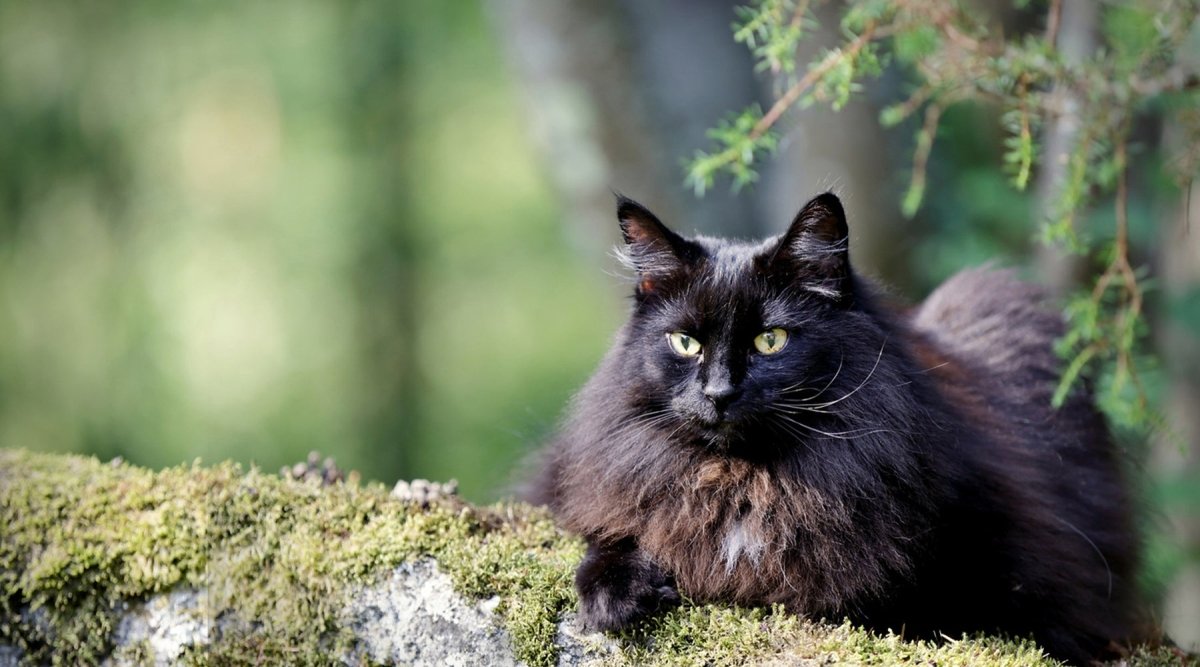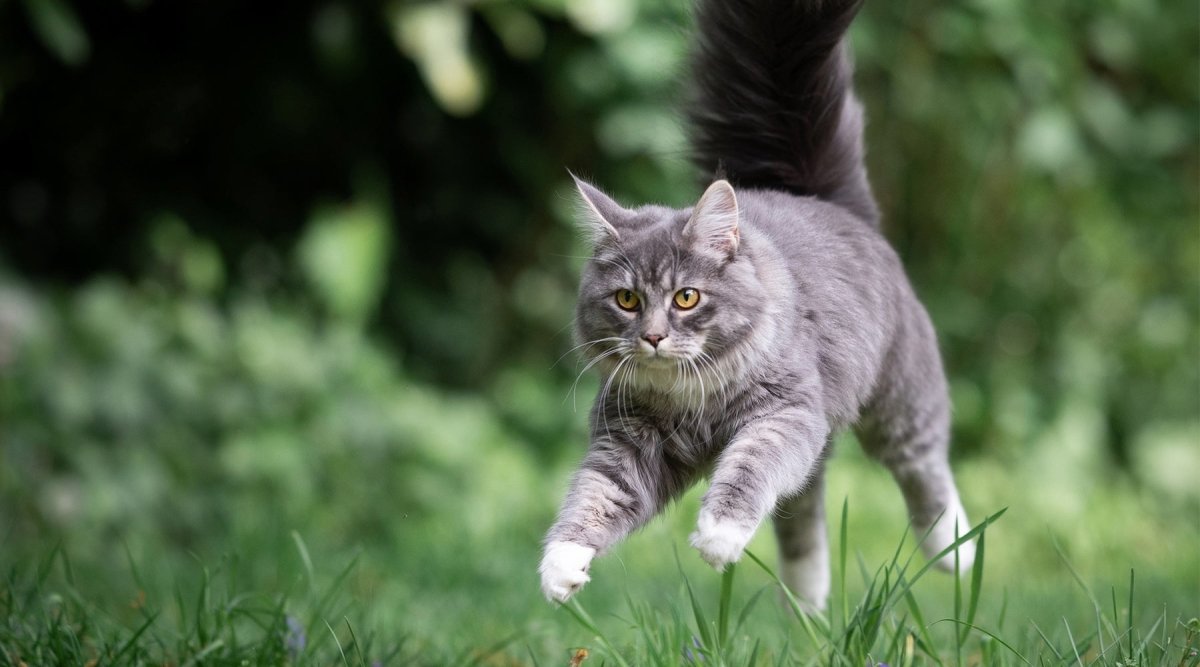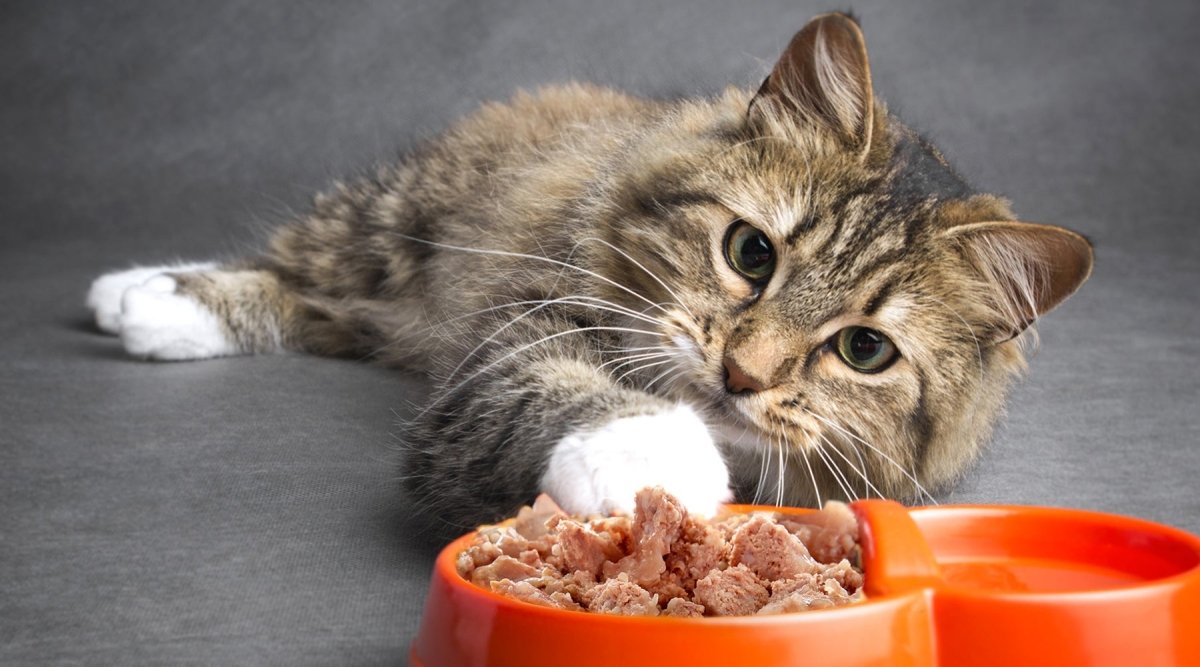Every cat owner wonders how much time they have left together in the course of their life with their feline companion. Everyone is aware that the life expectancy of cats is significantly shorter than that of humans. That's why we got to the bottom of the question "How long do cats actually live?" and took a closer look at the life expectancy of cats. In this article, you can also find out which factors play a major role in a cat's longevity.
Average cat age - how long a cat's life is
Many cat owners wonder how old cats actually get. There is no general answer to this question, but it can be said that cats live to be around 15 years old on average. However, there are also a few specimens that reach a proud age of around 25 years. The world's oldest cat to date, who has even made it into the Guinness Book of Records, is Crème Puff. She lived to be 38 and died in 2005. However, this is a rather rare occurrence and the average age of a cat is significantly lower.
The life expectancy of cats depends on various factors such as their diet, environment and care. The breed of cat also plays an important role. Some breeds are predisposed to hereditary diseases that can significantly shorten the life of the cat. However, with the right care and treatment, the life of sick and chronically ill cats can be significantly extended.
When is a cat old?
Cats become senior citizens from around the age of 12 and the first signs of ageing appear at the age of seven. These do not have to be immediately noticeable externally, many processes take place without symptoms. The metabolism works more slowly and the immune system also becomes more vulnerable. Cell renewal shifts down a gear so that the cells no longer regenerate as quickly as they did when we were younger. Organ functions also decline with age. These are all processes in ageing cats that take place behind the scenes and are barely noticeable to the cat or the owner.
Life expectancy of cats - first signs of old cats
Cats fall ill more frequently in old age, small colds or wounds heal more slowly. The sense of smell, taste, hearing and sight also decline in old cats. The cat no longer hears as well and does not always respond to all the signs or commands you give it.
Other visible signs of ageing are often noticeable in the coat and skin. While the top coat used to be shiny and vital, it has lost more and more color with age and can even become brittle and dull. Although this coat condition is normal in older cats, you can also support your old cat in its development. Natural food supplements can slow down the process and even give the cat's coat a new shine. Salmon oil for cats, vitality powder and brewer's yeast contain important nutrients for velvet paws and can be fed with the cat's food from an early age.
As the animal's immune system also weakens as it ages and is no longer as strong, your cat may suffer more frequently from infections and parasite infestations. Or he may simply feel sluggish and unwell. Immune-boosting supplements, such as coconut oil for cats, can help to strengthen your feline friend's immune system and reduce his susceptibility to infections. However, you should not use synthetic products, as these are difficult for an old cat's body to process and have significantly poorer bioavailability.
Teeth also show the first signs of wear and tear with age: Gum inflammation, periodontitis and even tooth loss characterize the senior years of many cats. The animals often also suffer from bad breath, which can smell very pungent. With our Denta Clean & Care powder, you can improve your cat's oral hygiene and reduce plaque and tartar build-up. The purely natural mixture of herbs is tailored to your cat's needs and has an effect on the bacterial balance in the mouth.
Indoor cats vs. outdoor cats - average age of cats
Cat owners are often faced with the question of whether or not to allow their four-legged friends to go outside. This is a question that everyone has to decide for themselves. However, outdoor cats are exposed to many different dangers on a daily basis that affect their life expectancy. It is not uncommon for cats to be run over or even poisoned. They contract infectious diseases or become hosts to parasites. These are all factors that have a major influence on the lifespan of cats.
The situation is of course very different for domestic cats. The house cats stay protected within their own four walls most of the time and are only exposed to dangers in the household. External influences such as poisoning, being run over or infections from stray cats hardly play a role in the life expectancy of an indoor cat.
Extending a cat's lifespan
In order to reach an advanced age, the cat's lifestyle, diet and regular activity with the animals are decisive. A cat food that is adapted to the cat and its activity provides the house cat with important vitamins, minerals and fiber.
In addition, cats are almost pure carnivores, so cat food should contain at least 95% meat. The rest should consist of food supplements and vegetables or fruit. Whatever your cat's preferences, you can find cat food in many different types of meat.
In addition, cat owners should not forget that cats also need to be distracted and kept busy. Even though cats have an independent character, they should not be left to their own devices.
Food supplements for a long cat life
Many cat owners are not aware that food supplements can also be fed in addition to normal cat food. If you stick to the specified feeding recommendations, it is not possible to overdose on vitamins, minerals etc.. However, these supplements provide an extra portion of nutrients and benefit many functions in the cat's body. Food supplements can be used particularly well for various physical ailments, malnutrition or simply as a boost. Your cat can always use an extra vitamin boost for the joints, immune system, coat and skin, so you can also help to extend your cat's life expectancy. You can feed the natural supplement as a temporary cure or permanently. If you have any questions about the right care for your cat, our veterinary practitioners will be happy to answer them at any time.
Conclusion
"How long do cats live?" This depends above all on how the four-legged friend is kept and their breed. The average age of cats is around 15 years. However, there are often deviations upwards or downwards. A diet and care adapted to the cat can significantly extend the lifespan of velvet paws. Natural food supplements can provide valuable support for senior cats, especially in old age. Supplementary vitamin supplements additionally strengthen the immune system, metabolism and various organ functions.



